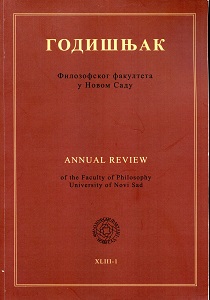SAMOEFIKASNOST NASTAVNIKA: ISHODI, IZVORI I MERENJE KONSTRUKTA
TEACHER SELF-EFFICACY: OUTCOMES, SOURCES AND CONSTRUCT MEASUREMENT
Author(s): Stefan Ninković, Olivera Knežević FlorićSubject(s): Education, School education
Published by: Филозофски факултет, Универзитет у Новом Саду
Keywords: teacher; self-efficacy; quality of instruction; collective teacher efficacy; social cognitive theory
Summary/Abstract: In the past twenty years, social cognitive theory has received a great deal of attention from educational researchers. This theory postulates that teacher self-efficacy affects a number of important outcomes for both teachers and students. International education assessments indicate a universal relevance of this construct, regardless of differences in national contexts. The results of previous studies have shown that teacher self-efficacy is a predictor of numerous desired outcomes, including student achievement, teacher job satisfaction and commitment.An insight into the results of existing research enables understanding of the role of teacher self-efficacy in the shaping of the quality of teaching, which is a significant factor in the success of every educational system. The aim of this paper is to present the most significant ideas about the sources and outcomes of teacher self-efficacy and classroom processes that mediate the relationships between this construct and important educational outcomes. The most important sources of teachers’ self-efficacy are mastery experiences, vicarious experiences, verbal persuasion, and emotional states. The effects of teacher self-efficacy are mediated by different classroom processes, such as instructional support, effective classroom management, and emotional teacher support. It is evident that the researchers have agreed that teacher self-efficacy is a multidimensional construct whose examination involves the application of assessment tools that take into account the domain specificity of the teachers’ beliefs about their own capabilities necessary to achieve the desired outcomes. Despite this fact, there are still some conceptual difficulties in measuring this construct. Social cognitive theory supports the idea of a reciprocal relationship between two forms of teachers’ efficacy: individual and collective. In the final part of the paper, it is concluded that the research of teacher self-efficacy in Serbia would not only enable a comparison of the results with foreign studies, but also have significant practical implications.
Journal: Годишњак Филозофског факултета у Новом Саду
- Issue Year: 43/2018
- Issue No: 1
- Page Range: 237-249
- Page Count: 13
- Language: Serbian

